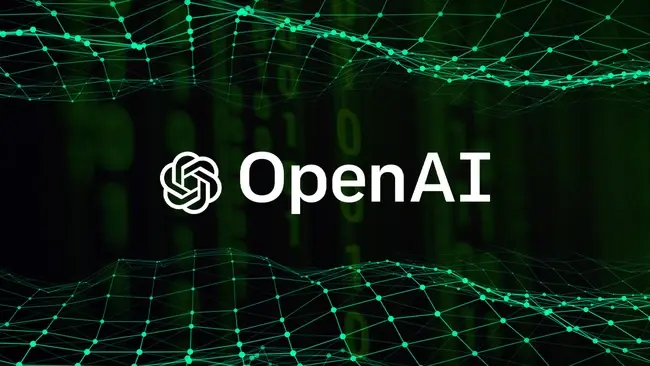As ChatGPT takes the world by storm for its advanced generative technology, experts speculate it may represent the future of AI implementation within the enterprise.
The AI-wired chatbot was unveiled last Wednesday and has since become a viral sensation for its impressive capabilities, gaining over a million users worldwide in its first week of release.
Developed by OpenAI using the GPT-3.5 large language model, the chatbot prototype employs deep learning to generate accurate, human-like responses to any question or command – from writing music to creating weight loss plans, to coding.
Sam Altman, CEO of OpenAI said the latest chatbot iteration was still in the development process, providing the world with “an early demo of what’s possible.”

“Soon you will be able to have helpful assistants that talk to you, answer questions, and give advice. “Later you can have something that goes off and does tasks for you. Eventually, you can have something that goes off and discovers new knowledge for you,” he explained.
An AI-wired digital revolution
OpenAI previously made waves with its DALL-E image generation technology, but the organisation’s latest text prototype has greatly extended the appeal and audience of its AI technologies.
“There’s a certain feeling that happens when a new technology adjusts your thinking about computing,” Box CEO Aaron Levie said, adding, "Google did it. Firefox did it. AWS did it. iPhone did it. OpenAI is doing it with ChatGPT.”
Some experts have also expressed how the tool may transform a wide variety of industries and change the way content is produced, proofread and edited.
robots are coming for my job. pic.twitter.com/yuGX7mUGe7
— Taylor Soper (@Taylor_Soper) December 1, 2022
“We are seeing the first inning of technology that will turn information workers — everyone from journalists to marketers to programmers — from the generators of content and code to editors of it,” Greg Gottesman Managing Director at Pioneer Square Labs told GeekWire.
“I think over time it will change the type of work we do and the way we work," he added.
“AI will eliminate the search engine”
With ChatGPT in continuous development, industry experts suggest its advancement may pose the biggest challenge to search engine providers like Google, Bing and Yahoo.
This is due to many of ChatGPT’s answers far surpassing Google’s suggestions and search responses in relevancy, leading many to imagine it as a rival to the search engine.
Paul Buchheit, a developer of Gmail, tweeted last week “Google may be only a year or two away from total disruption, adding that “AI will eliminate the search engine result page, which is where they make most of their money.”
“The old search engine backend will be used by the AI to gather relevant information and links, which will then be summarised for the user.
“It's like asking a professional human researcher to do the work, except the AI will instantly do what would take many minutes for a human,” Buchheit explained.
AI’s limitations remain clear
Despite the promising future for generative AI systems like ChatGPT, experts highlight that work is still yet to be done before they transform content production and research.
For one, the AI system lacks key human characteristics and nuances that are needed for the content production. Instead, it creates its own bias.
When Venture's CTO Michael Bromley asked the chatbot for its “opinions about humans in general,” its answer was an unsettling reminder that Ai still struggles to replicate human morals in its responses.
I got #ChatGPT to tell me what it really thinks about us humans. pic.twitter.com/unkpLxP5uW
— Michael Bromley (@michlbrmly) December 3, 2022
OpenAI itself warns of this. The research group states ChatGPT "may occasionally generate incorrect or misleading information” due to it constructing its conclusions from online databases that, when put together, lack context and social awareness.
Yes, ChatGPT is amazing and impressive. No, @OpenAI has not come close to addressing the problem of bias. Filters appear to be bypassed with simple tricks, and superficially masked.
— steven t. piantadosi (@spiantado) December 4, 2022
And what is lurking inside is egregious. @Abebab @sama
tw racism, sexism. pic.twitter.com/V4fw1fY9dY
This is most noticeable when the system is requested to present biased information as it demonstrates the system's over-reliance on data-led decision-making.
Until this decision-making is greatly improved upon, generative AI systems shall continue to remain trapped in a data-locked moral chamber.
To read more about AI, visit out dedicated AI in the Enterprise Page.




Comments ( 0 )